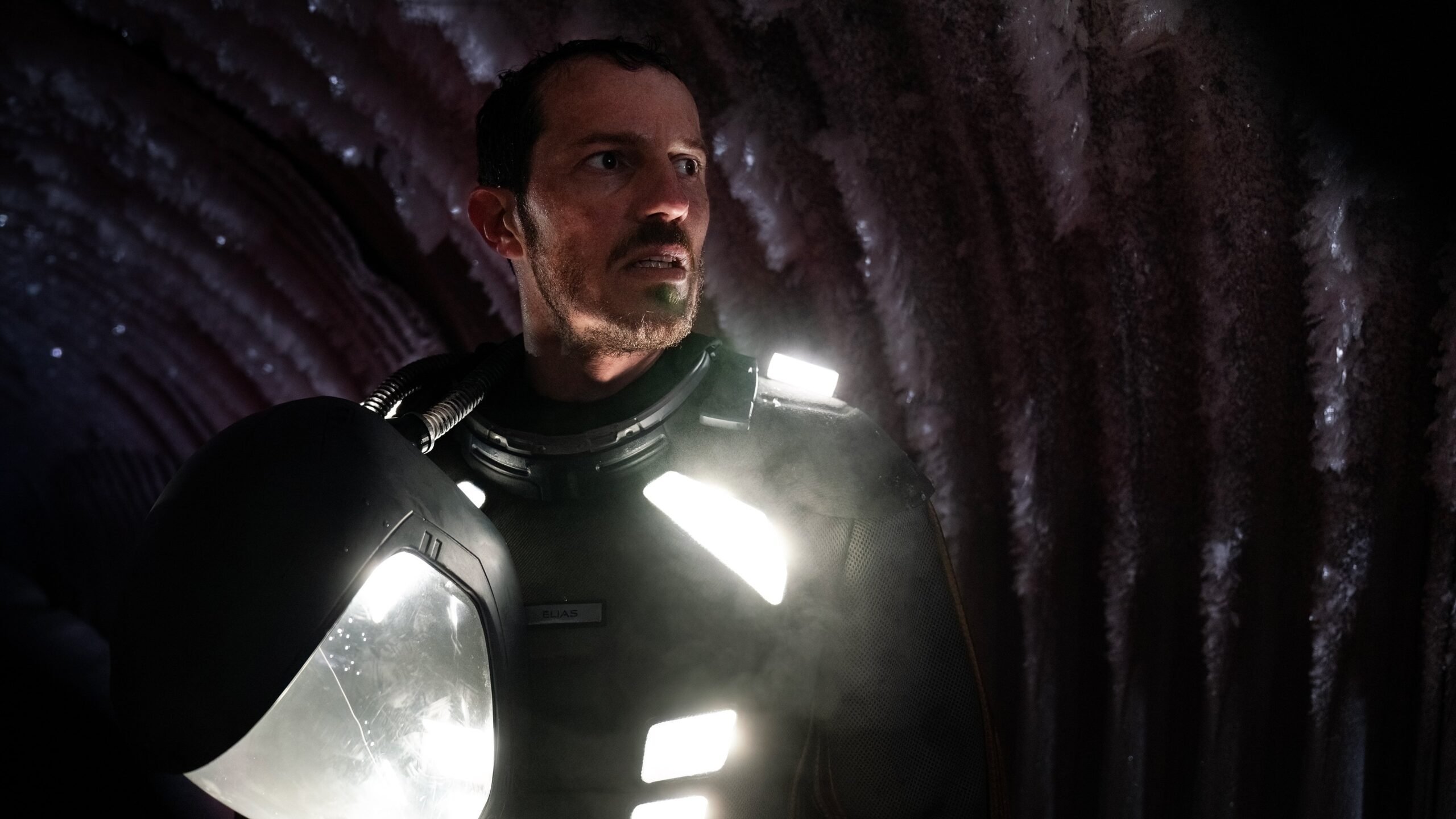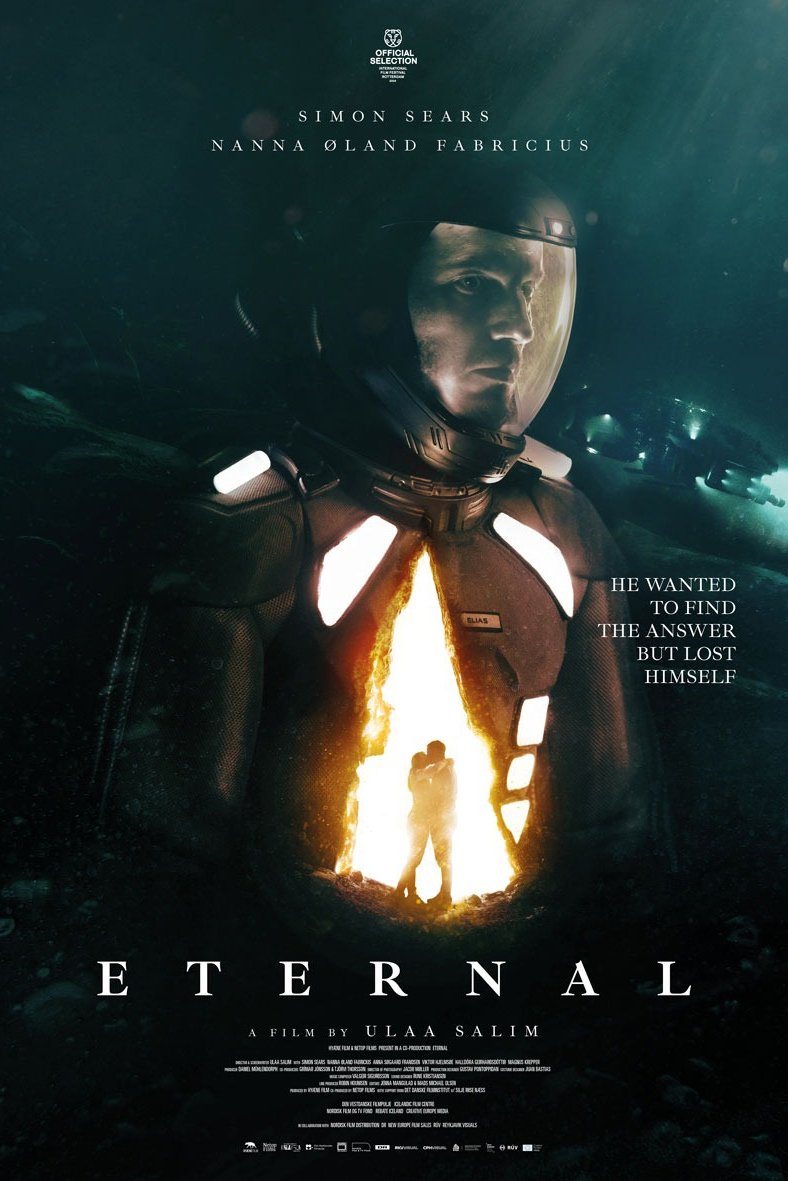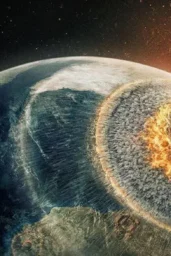The Weight of What Could Have Been
“The fracture speaks. Can you hear it?”
That haunting line lingers over the trailer for Eternal (For Evigt in Danish), Ulaa Salim’s underwater sci-fi thriller that’s less about apocalyptic spectacle and more about the quiet unraveling of a man who chose wrong. This isn’t The Day After Tomorrow with Nordic flair—it’s Eternal Sunshine of the Spotless Mind meets The Abyss, where the real disaster isn’t the collapsing planet, but the life left behind.
Simon Sears stars as Elias, a climate scientist lured by the abyss—a literal crack in the ocean floor accelerating ecological collapse. But the deeper he descends, the more the abyss whispers back: visions of Anita (singer Oh Land, magnetic in her acting debut), the woman he loved and left. The film’s genius lies in its inversion of disaster tropes. The fracture isn’t just geological—it’s psychological, a rip in Elias’s mind where regret floods in.

A Trend With Teeth
Denmark’s recent wave of climate cinema (The Rain, The Burning Sea) tends toward grand survival narratives. Eternal stands apart by zooming in—way in. Salim, whose Sons of Denmark tackled extremism with similar intimacy, frames the climate crisis as a backdrop for human frailty. The film’s power comes from its restraint: no cities crumbling, just a man staring into the dark, wondering if his sacrifice meant anything.
Dates & Details
- Premiered: Les Arcs Film Festival 2023
- Festivals: Rotterdam 2024
- Danish Release: 2024
- US Debut: June 27, 2025 (theaters), July 1 (VOD)
Why It Matters
Most climate films scream urgency. Eternal murmurs guilt. It’s a story for the Anthropocene’s quiet moments—when you’re not protesting or panicking, but lying awake, wondering if your choices hastened the end.
The best sci-fi bends reality to reveal truth. Eternal doesn’t ask if we’ll survive the fracture. It asks: What’s left of us if we do?









